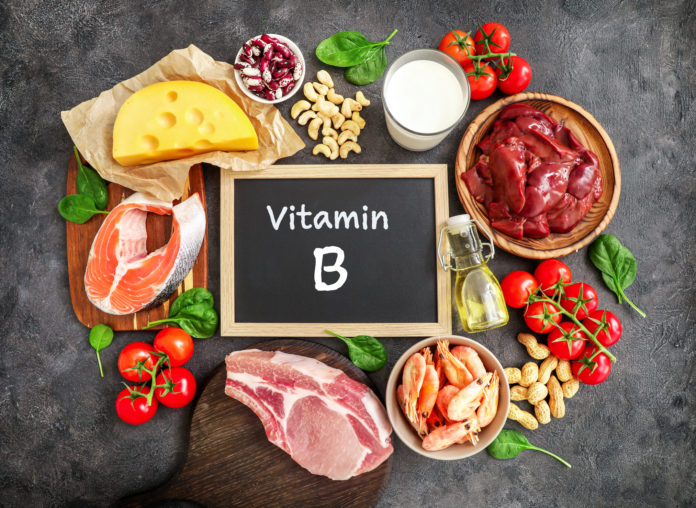By Dr. Mark Stengler, NMD MS
America’s Natural Doctor
Americans are more stressed than ever before due to the pandemic, financial situations, medications, overconsumption of alcohol, imbalanced diet, poor gut health, and environmental toxins. As a result, many people are tired, depressed, have poor memory and focus, and have weakened immune systems.
Boost of Health
Boosting B vitamin levels quickly improves energy. A deficiency of just one B vitamin will negatively affect the complex production of energy (ATP) in your cells. While people usually think of Supplemental B12 for energy, one will typically better results with a full spectrum B complex since many of the B’s are involved in ATP production.
Also, B vitamins are very important for focus, memory, depression, anxiety, and resistance to stress and illness. There are other beneficial activities occurring at a deeper level, such as improved detoxification, more efficient production of neurotransmitters (brain chemicals), better nerve flow and muscle function, and improved hormone metabolism.
Several of the B vitamins (B2, B6, Folate, B12) are involved in the metabolism of homocysteine, an amino acid type substance. When homocysteine blood levels are elevated, they cause inflammation of the blood vessels and brain, contributing to the risk of Alzheimer’s Disease and stroke. Adequate levels of these B vitamins help the body’s metabolism of homocysteine and reduced inflammatory response.
The Gut Connection
Your body cannot make B vitamins except for small amounts by the friendly bacteria in the gut. Healthy gut bacteria produce biotin, cobalamin, niacin, pantothenic acid, pyridoxine, and thiamin. However, it is no secret that the average person has dysbiosis-an overgrowth of disease-promoting bacteria and a deficiency of health-promoting bacteria. Therefore, nutrient production in the gut is a problem for many Americans. Gut problems make dietary intake and high quality, highly absorbable (gut and cellular) B vitamins very important.
B Vitamin Robbers
Many medications deplete the body of B vitamins. Examples include acid reflux medications such as the Proton Pump Inhibitors (PPIs), Prednisone, Metformin, Antibiotics, Birth Control Pills, Anti-seizure medications, Antidepressants, Chemotherapy drugs such as Methotrexate, and several others. Research has shown that the elderly who take three or more medications are prone to B vitamin deficiencies such as B2, B6, Folate, and B12.
People with absorption issues, such as those with acid reflux and taking PPIs, Crohn’s Disease, or Ulcerative Colitis, may have problems absorbing B vitamins. Many other disease states deplete the body of B vitamins.
B12 and Folate Power
The most biologically active form of B12 is methylcobalamin. While most medical doctors still recommend the synthetic cyanocobalamin form of B12, nutritionally trained doctors like me do not touch the stuff! The natural form of methylcobalamin works wonders in helping people with fatigue, depression, and some forms of neuropathy.
Folate is also misunderstood by many in the medical profession. Several naturally occurring folates are found in food and the human body. Folic acid is technically a synthetic nutrient, unlike the natural folates found in food or some supplements (such as methylfolate). Folate is essential for the life sustaining process of methylation. Methylation is required for normal cell division, nerve health, mood, the metabolism of homocysteine, and the metabolism of amino acids. When one consumes synthetic folic acid as found in many B complex supplements, it must go through several steps to be converted into its active form known as 5-methyl-tetrahydrofolate (5-MTHF). Due to common genetic mutations (MTHFR genes), about half of the population does not metabolize folic acid well into its active form. A better solution is to get folate in its natural food form, known as methylfolate. Also, B12 (methylcobalamin) and B3 work in tandem with folate in the process of methylation.
Dr. Stengler’s B Vitamin Chart
Vitamin B1 (Thiamin)
Function: Energy metabolism (carbohydrate metabolism), neurological activity, brain and heart function.
Sources: Pork, beef, liver, brewer’s yeast, whole grains, brown rice, legumes
Deficiency Signs: Beriberi, a condition characterized by fatigue, anorexia, weightloss, gastrointestinal disorders, fluid retention, weakness, heart abnormalities, stunted growth, cyanosis, convulsions, poor memory
Supplemental Optimal Intake: 50 mg
Toxicity: None reported
Vitamin B2 (Riboflavin)
Function: Energy production, fatty acid and amino acid synthesis, & methylation.
Sources: Organ meats such as liver, milk products, whole grains, green leafy vegetables, eggs, mushrooms, broccoli, asparagus, and fish.
Deficiency Signs: Cracking at the corners of the mouth, inflamed tongue, reddening of the eyes, vision problems, dermatitis, nerve damage, decreased neurotransmitter production, malformations and retarded growth in children and infants.
Supplemental Optimal Intake: 50 mg
Toxicity: None reported
Vitamin B3 (Niacin)
Function: Energy production, formation of steroid compounds, red blood cell formation, cognitive function, and mood.
Sources: Organ meats, peanuts, fish, yeast, poultry, legumes, milk, eggs, whole grains, and orange juice.
Deficiency Signs: Pellagra, a condition characterized by dermatitis, diarrhea, dementia, Depression; schizophrenia, weakness, lassitude, anorexia.
Supplemental Optimal Intake: 10 mg
Toxicity: Large doses can cause dilation of the blood vessels and flushing of the skin and elevated liver enzymes.
Vitamin B5 (Pantothenic Acid)
Function: Metabolism of carbohydrates, proteins, and fats for energy production; production of adrenal hormones and red blood cells
Sources: Organ meats, fish, chicken, eggs, cheese, whole grains, avocados, cauliflower, sweet potatoes, oranges, strawberries, yeast, & legumes.
Deficiency Signs: Numbness and shooting pains in the feet; fatigue
Supplemental Optimal Intake: 250 mg
Toxicity: None reported
Vitamin B6 (Pyridoxine)
Function: Formation of body proteins, neurotransmitters, red blood cells; immunity
Sources: Meats, poultry, egg yolk, soy, peanuts, bananas, potatoes, whole grains, and cauliflower.
Deficiency Signs: Mood abnormalities, sleep problems, anemia, impairment of nerve function, eczema, cracking of the lips and the tongue, premenstrual syndrome, and depression.
Optimal Intake: 20 mg to 50 mg
Toxicity: Very high dosages can cause nerve symptoms—numbness and tingling.
Folate (Methylfolate)
Function: Methyl donor that is required for many processes in the body (reduces homocysteine levels), cardiovascular health, red blood cell production, skin and nail health, cell division, production of neurotransmitters and hormones. Prevents neural tube defects (must be taken by the mother in early pregnancy).
Sources: Dark green vegetables—spinach, kale, broccoli, asparagus—as well as organ meats, kidney beans, beets, yeast, orange juice, whole grains.
Deficiency Signs: Macrocytic anemia, fatigue, irritability, weakness, weight loss, anorexia, dyspnea, sore tongue, palpitations, forgetfulness, digestive upset, & diarrhea.
Optimal Intake: 400 micrograms (mcg)
Toxicity: None
Vitamin B12 (Cobalamin)
Function: Synthesis of DNA, red blood cells; nerve development, energy production
Sources: Gut bacteria synthesis, organ meats, clams, oysters, soy, milk products, cheese, chlorella, and spirulina.
Deficiency Signs: Macrocytic anemia; glossitis; spinal cord degeneration; digestive upset; fatigue; mental abnormalities, including irritability, and depression.
Optimal Intake: 200 mcg to 500 mcg
Toxicity: None reported
Biotin
Function: Metabolism of fats, proteins, and carbohydrates; nail and hair growth, skin health.
Sources: Gut bacterial synthesis, organ meats, cheese, soybeans, eggs, mushrooms, whole wheat, and peanuts.
Deficiency Signs: Seborrheic dermatitis, brittle nails and hair
Optimal Intake: 300 mcg
Toxicity: None reported
Dr. Mark Stengler NMD is a bestselling author in private practice in Encinitas, California. His weekly newsletter Dr. Stengler’s Health Breakthroughs, is available at www.americasnaturaldoctor.com
REFERENCES:
Das P, Babaei P, Nielsen J. Metagenomic analysis of microbe-mediated vitamin metabolism in the human gut microbiome. BMC Genomics. 2019;20.
Mospan C. Drug-Induced Nutrient Depletions: What Pharmacists Need to Know. US Pharmacist. 2019;12:18-24. https://www.uspharmacist.com/article/druginduced-nutrient-depletions-what-pharmacists-need-to-know.
Stengler M, Balch J, Young-Balch R. Prescription For Natural Cures. 3rd ed. Turner Publishing; 2016.

